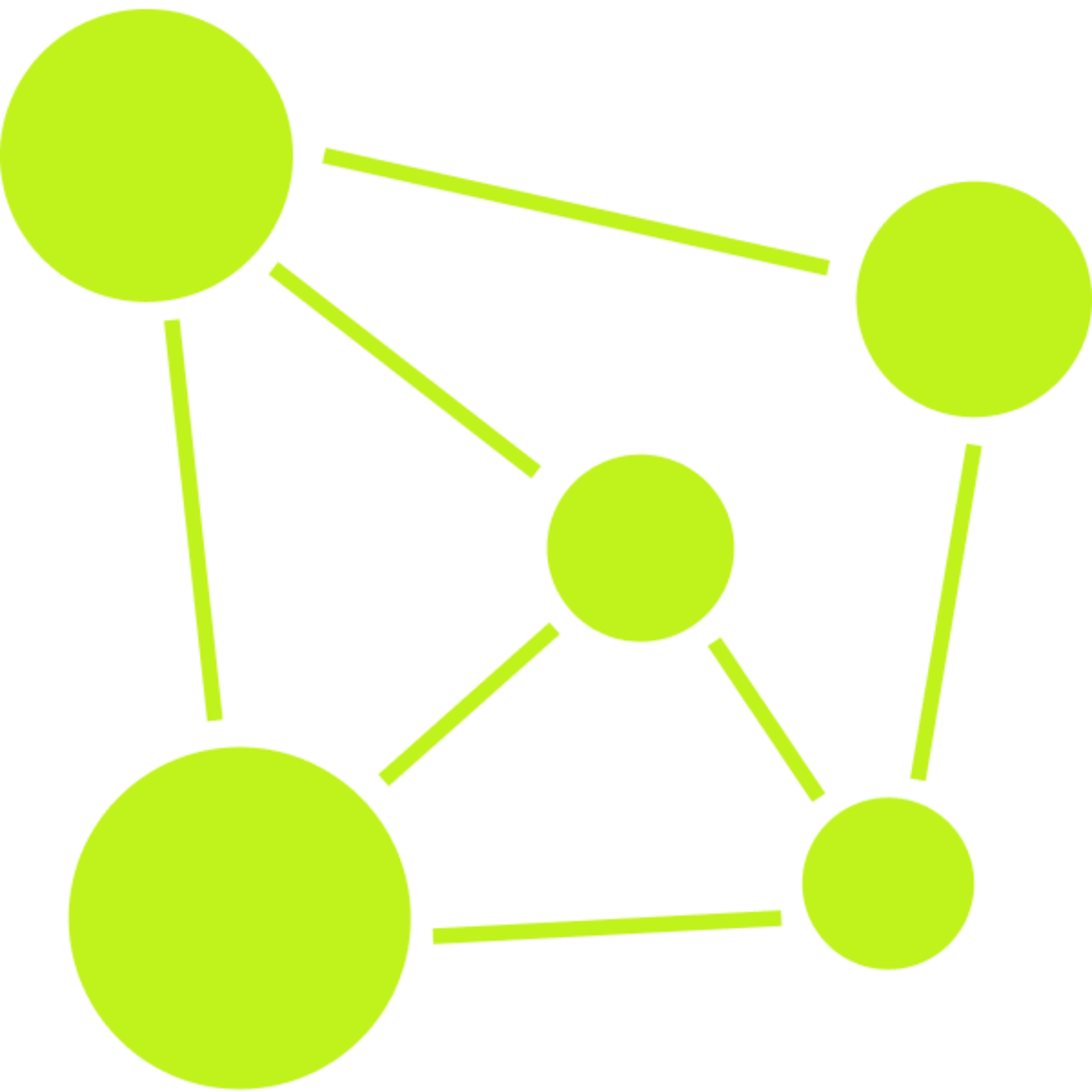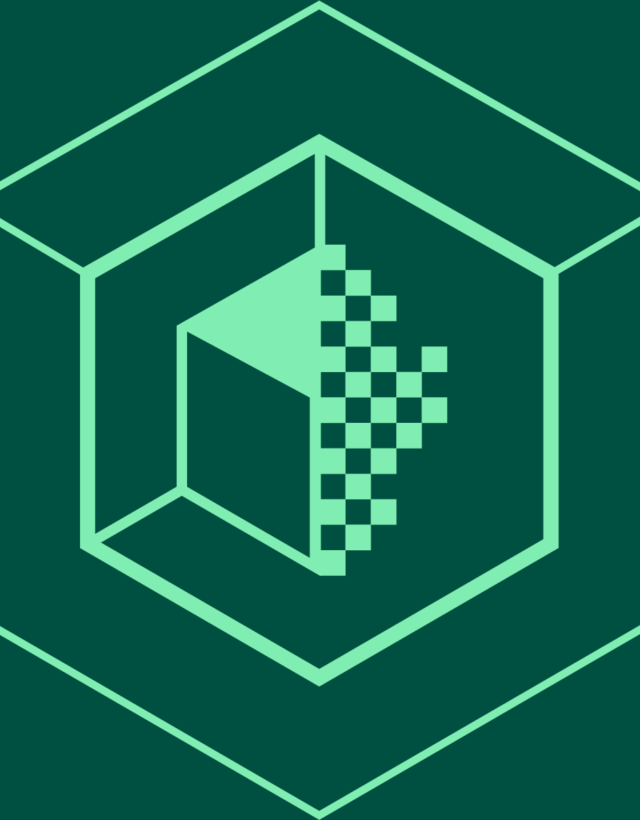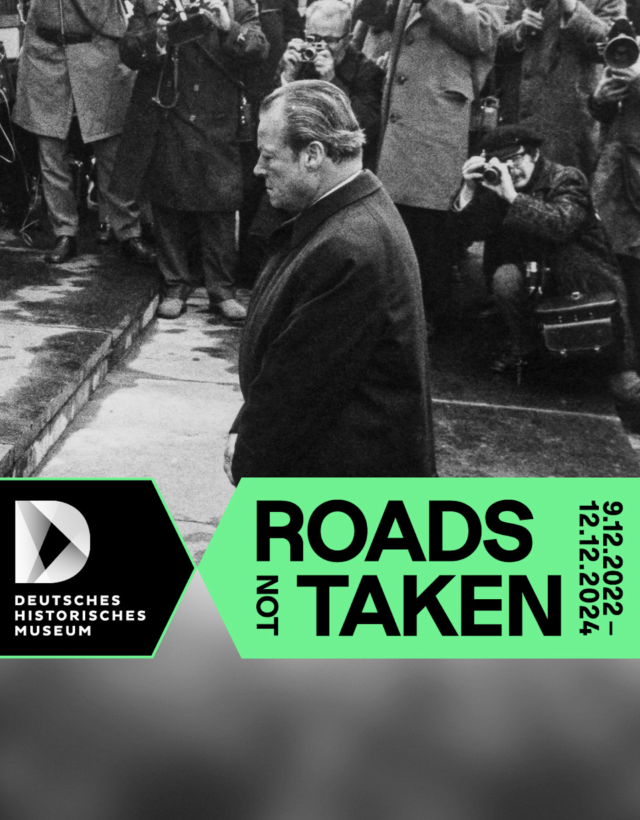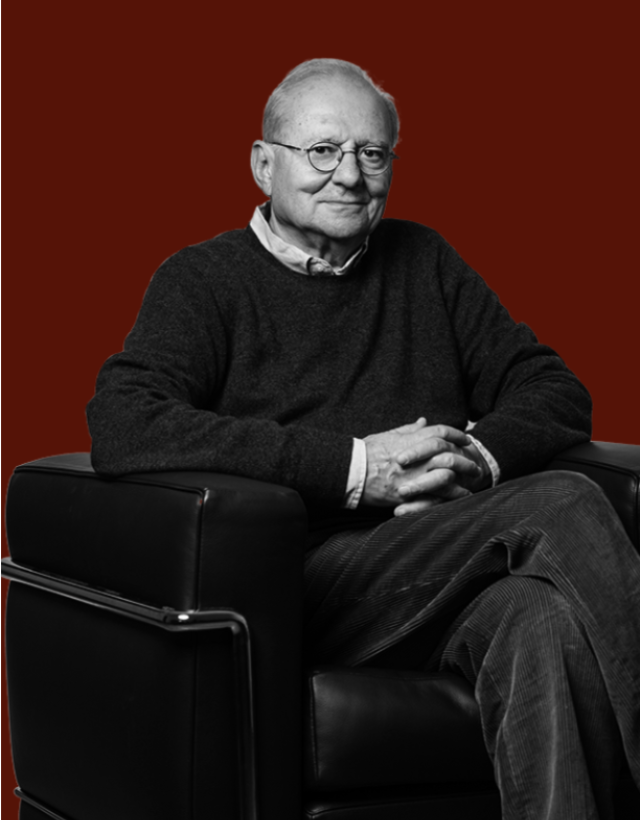
The fellows seek to engage with a variety of questions: How do we engage with the factors and actors (de)stabilizing democracy in the digital age? How can we employ digital methods to counteract hate and bring people together?
The goal for this year’s program is building a cohort of leaders whose approaches to these questions further their development as champions of democracy, community and social justice.
Thus, the Landecker Democracy Fellowship funds 30 carefully chosen individuals who were born in or after 1980 and whose goals range from empowering Amazon workers in Poland to take on the company’s oppressive tracking algorithms, to the curation of a digital exhibition examining the far-right in the United States, to the development of a program that high school teachers can use to teach media literacy around fake news and misinformation.
“Democracies were in danger long before the pandemic hit and before Russia invaded Ukraine. And still, these two transformations have a magnifying effect: making structural inequality, hate, racism or antisemitism visible in all their brutality. We see a rise in conspiracy theories, both on- as well as offline. Individuals and collectives receive threats against their own well-being and those of their surroundings and communities. This is a reality we can’t and won’t accept,” says Luisa Maria Schweizer, Program Director of the Alfred Landecker Foundation. “The Landecker Democracy Fellowship is a unique opportunity to tackle these challenges, to defend our democracies and open societies in the digital age.”
Hailing from the European Union, Ukraine, the United Kingdom, and the United States, 30 community leaders and young professionals were selected through a rigorous admissions process from a pool of 90 finalists. The Fellows and their projects, each unique and innovative in their ambitions, aim to foster social justice and create inclusive societies. The Fellows’ propositions will be supported with a monthly stipend (10,000 Euros in total), seed funding of 5,000 Euros for their projects, guidance and intense training to increase their individual impact on political discourses, policymaking and social realities.
Alin Gramescu is a multidisciplinary creator and initiator, Founder of Station Europe, owner of Thinking Face Emoji company, and Leader of the Alliance for Education and Society.
His project {Error 404} is a multiplayer game where players will be put in the position of active citizens. In their journey, the players will be confronted with challenges of democracy in the digital era, such as fake news, hate speech and surveillance.
Alina Jabbari is an interdisciplinary scholar, holding an LLB and Master’s degrees in Global Criminology, and in Theology and Religious Studies. She currently works as a lecturer in Social Sciences at the American University of Iraq, Sulaimani. Her project Haar Minaret is an online platform where Muslims in the Netherlands can share their experiences, create a common language, and have a safe space and a home within a Muslim community.
Alvin Carpio has spent over a decade working on issues of social justice, human rights, and public policy. He was listed on Forbes 30 Under 30 for his work. His project The School of Social Justice is an online education platform for people who want to learn how to change the world, teaching practical strategies, skills, tools, and tactics to tackle the manifold threats to democracy.
Anna Duensing is a historian, curator, and public scholar. She received her Ph.D. in History and African American Studies from Yale University in 2022 and is currently a Postdoctoral Fellow at the Carter G. Woodson Institute at the University of Virginia. Her Action project “The April Institute: Unearthing histories of Fascism and Antifascist Resistance” is curating a series of digital exhibitions about antifascist organizing, past and present.
Artur Wieczorek is a trainer, campaigner, and consultant. He graduated in development studies from Jagiellonian University in Poland and the National University of Singapore. He has worked for the United Nations Development Programme (UNDP), the National Center for Climate Change, several environmental NGOs and the University Muhammadiyah in Malang, Indonesia. The aim of his project is to develop a concise curriculum and toolkit for high schools and train at least 300 high school teachers to recognize fake news. It will then compile and publish a toolkit of fact-checking methods.
Ayden Férdeline is a public interest technologist and researcher based in Berlin. He is currently the lead rapporteur of the Working Group on Pluralism of Information in Curation and Indexation Algorithms at the Forum on Information and Democracy. As his project, Ayden is developing a playbook and mentorship program that explores strategies for workers and trade unions, helping to understand and engage in the wider internet governance arena: 2024’s Summit of the Future.
Chandra Vadhana Radhakrishnan is a Fulbright PostDoc Fellow and serial entrepreneur who enjoys working on initiatives that create a sustainable and gender-equal future for the world. Chandra has won the UNCTAD Empretec Women in Business Award 2018 and is part of the International Visitors Leadership Program of the U.S. Department of State (2019). Chandra’s project is building a community of entrepreneurs and impact makers with a mindset of social equity and sustainability and utilizing it for creating a beautiful and just planet.
Christoffer Horlitz is a researcher and curator with a focus on human rights, technology, and borders. Passionate about experimenting with digital and community-based methodologies, he engages with questions around conflict, security, and digital politics. Together with artists from various regions, Christopher will investigate how the EU border expands in time and space due to the EU's increased investing in border surveillance technology and create responses and interventions in The Glitch Border Manifesto.
Esra Karakaya is an award-winning journalist and the Founder of Karakaya Talks, a talk show and news content startup that centers traditionally marginalized communities. Among many other prizes, Zeit Campus 2020 named her as one of the 30 under 30 Changing Germany. Her project “Connect and Thrive” is an attempt to bring together media entrepreneurs of underrepresented communities and build coalitions to share insights and streamline resources, editorial capacities and reach.
Frederik Kirk is an IT and Innovation Project Leader. He is working in the public sector, focusing on making data available for healthcare providers in diagnostics enabling them to make better decisions, whether through automation or development of new software services. He is creating the “GDPR Monitor”, a service that tracks down your data and empowers you to make the choice on where it is used.
Jo Jara Kroese, Co-founder of Radical Data, is a statistician and technologist who makes analyses and tools for justice and joy. With an academic background in mathematics, they worked as a freelance statistical consultant leading research projects for organizations such as the UK government, FSC, DEFRA, and Sport England. As their project, Jo is creating "Comapping,“: Through workshops and open-source software, the project supports (marginalized) communities to use participatory mapping to share who they are, where they live and what's important to them.
Judith Blijden is a Senior Policy Officer Digital Transition, Social and Economic Council of The Netherlands. The fellowship allows her to work on her first production: the Digital Period. The podcast will tell the story about what happens behind the user interface of period tracking apps. The podcast series further examines the relation between autonomy and technology.
Kiza Magendane is an independent writer and policy entrepreneur based in The Hague. He studied political science in Amsterdam and Antwerp and has a column for the Dutch leading daily NRC Handelsblad. His project “Progressive Café” aims to fight affective polarization and promote a pluralistic culture in the digital public space in The Netherlands.
Kuba Piwowar is a Sociologist and cultural scientist. He holds a Ph.D. in humanities and specializes in the socio-cultural aspects of new technologies, data activism, and market research. Since 2008, he’s been working at Google, as an analyst and advisor to key business partners. As his project “From Data Literacy to Data Activism” Kuba empowers people to start using data to push social change.
Lili Balogh is a bioengineer and tropical agronomical engineer, involved in the international Food Sovereignty and Agroecology movement for the past decade.
She has worked in several eco-political NGOs to promote agroecology and regenerative food systems in different parts of the world. Her project aims to disseminate knowledge about agroecology and food sovereignty, to connect people, to advocate for the scaling out and up of agroecology, and to conduct projects, studies, and publications with and for its members.
Maciej Kuziemski is the Managing Director of Philanthropy for Impact, a Central European initiative aiming to increase the region’s democratic resilience through systemic philanthropy. Before this, he spent the last decade in public policy, academia, and social entrepreneurship. His project “Beyond Black Mirror” attempts to shed light on European social scoring practices. To achieve this, he is producing a limited series podcast and launching a public dialogue exchange.
Marta Rozmysłowicz is a union organizer at OZZ Inicjatywa Pracownicza (Workers’ Initiative), a rank-and-file labor union in Poland, being the first point of contact for workers who want to start or join the union. She also coordinates the union’s legal team, representing workers and the union in labor court and helps workers negotiate with employers at their workplaces. Her project „Workers fight back algorithms!” is creating a platform that will generate tools for workers to fight back algorithms.
Melissa De La Torre is a contracts analyst at Coinbase and a U.S. Citizenship Interview Coach at Make The Road New York. At Coinbase, she is launching a supplier diversity program to create more business opportunities for companies owned by ethnic minorities, women, and the LGBTQI community. Her Project “Civis” is a digital learning platform for those hoping to become U.S. citizens. It allows applicants to practice for the naturalization test through mock interviews in order to increase their confidence on the interview day, and ultimately participate in US democracy.
Michael Zuch is an Austrian-American social worker, clinical therapist, and organizer based in Nashville, Tennessee, specialized in working with individuals and families impacted by traumatic stress. He is also the co-founder and director of a “Chroma Mental Health Collective”. His project is building a foundational infrastructure with the mission to eradicate mental health disparities for the LGBTQ+ community in Tennessee by eliminating barriers and cultivating communities of care.
Nicole Rieber is a psychologist and media scientist, with a focus on media, digitalization, and democracy. After finishing her Ph.D. in Psychology, she studied media science and directed a documentary about refugee children, their flight and life in Germany, which won the LFK Medienpreis in 2017. Her project “Digital.Truth” aims to teach adults to critically look at disinformation and conspiracy theories online. It strengthens media literacy and builds up resilience towards conspiracy theories.
Nikola Lero is a Sarajevo-born poet, activist, and researcher from Bosnia. He graduated with a joint Master’s degree in migration studies and intercultural relations, won awards and currently serves as UNESCO Youth Champion for Peace in a global UN initiative, “Social Media 4 Peace,” which aims to strengthen the resilience of societies to potentially harmful content spread online. His project "In-Between Worlds," is focusing on young first and second generation immigrants in the US and their cultural production in online spaces. Its main output is a digital audiovisual TikTok/Spotify Poetry Book.
Noah Schöppl is a Social Innovator & Policy Advisor, working on bringing social innovation to the public sector in his role as lead for Public-Citizen Partnerships at ProjectTogether. The organization's project UNMUTE NOW, an open social innovation program for promoting the democratic rights of the young generation, was funded by the Alfred Landecker Foundation.
His new project "The Tech Roundtables" develops and offers innovative formats to enrich the European policy process with underrepresented voices and create meaningful interaction with policymakers.
Nora Mpho Mathelemuse has a background in Psychology, Sociology, and Data Science, which they combine to design solutions that can have an impact on a host of different social justice issues. They have been designing and delivering workshops around the topics of gender diversity, sexuality, and sex, and learned how to program in Python and SQL. As their project, Nora is developing “Queerly”, a text editor app that not only corrects texts but also provides text samples for inclusive gender-neutral language in German.
Nuno Carneiro leads the Artificial Intelligence strategy at OutSystems, the global leader in high-performance application development, where AI is being used to fundamentally change the way software is built around the world. His project “Tools for Democracy” aims to harness an international community of open-source developers to build a platform for tools that change-makers can use to promote citizen engagement and accountability of political actors in their own countries.
Rayén Jara Mitrovich is a co-founder of Radical Data, a collective using data and building tools for resistance and alternative futures. Their background in contemporary dance and community-based projects helped exploring data and technology as tools for transformation. Rayén’s project “Queering the Quantified Self” explores alternative approaches to owning and using data from our bodies; through QQS workshops, tools, and data cooperatives, “Queering the Quantified Self” imagines a democratic future for our bodies' data.
Riley Jones IV is a social entrepreneur in the field of education and a co-founder of Sector Software, an organization using technology to create and facilitate opportunity pathways for the new economy. His work garnered him recognition as a Forbes 30 Under 30 Social Entrepreneur and SOCAP Scholar. As his project, Riley is designing a vehicle for alumni from Chicago-based school systems to offer their perspective, and an accountability apparatus for the school system's governance.
Saijai Liangpunsakul works as a project director at the intersection of technology and human rights. Her work focused on using technology as a force for civic engagement and democracy. She helped Myanmar’s government set up a national mHealth system to combat maternal mortality. Her project explores the collaboration model between tech companies, civil society, and vulnerable groups to prevent harm.
Solomiia Stasiv is a consultant and representative of the Clooney Foundation for Justice on accountability in Ukraine. Her project “Archives of War: Artists and Investigators holding war criminals accountable” aims to create a database and use digital forensic tools to analyse evidence coming from videographers and photographers working on the front lines of Russia’s war in Ukraine.
Sujin Julia Noël is a consultant to organizations that aim to build an inclusive work culture and a coach to BPoC activists who are stepping into their leadership power. Her tribe is the Leading Change Network (LCN), a global network of community organizers. As her project, Sujin Julia is developing "Postmigrant Powerhouse" - a platform connecting persons of diverse heritage, especially Black Persons and People of Color, in a digital network.
Yasmin Al-Douri is a Politics and Technology Graduate Student at the Technical University Munich focusing on regulation of emerging technologies and AI ethics. She also works as a Business Program Manager at Microsoft, where she engages in ‘Responsible AI’. Together with her co-founders from “Responsible Technology Hub”, Yasmin is building the first young-led Hub in Germany that focuses on responsible tech.


